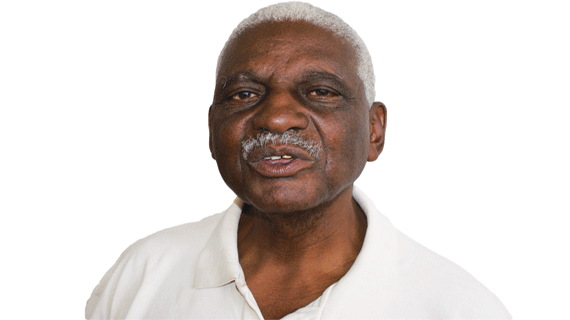
A CASE has been made to argue for language as culture. One cannot see any difference of opinion on this one.
-ISAAC Mpofu (UNYANDENI oMpofu)
The Ndebele language is part Ndebele culture.
We have already defined who the Ndebele people are.
For ease of reference (see Southern Eye, August 2013 16, Page .8) we wish to repeat our definition which was practically demonstrated by Mzilikazi, the founder of the Ndebele Nation.
We clearly stated that Mzilikazi left Zululand with a Zulu group.
But beyond the Drakensburg Mountains into what is now the Transvaal he mixed heavily with the Sotho, Venda, Tsonga (Shangani) and other tribes and only then did the group become Ndebele.
He came to this country, now koMthwakazi (eNdlabunondo), or Ndebeleland and mixed with the local tribes to expand this Ndebele nation. Consequently , the Ndebele were now made up of Nguni, Sotho, Kalanga and other small groups of Karanga, Remba, Rozwi, Nyubi and so on). None of them are more Ndebele than the others – that’s a fallacy.
- Chamisa under fire over US$120K donation
- Mavhunga puts DeMbare into Chibuku quarterfinals
- Pension funds bet on Cabora Bassa oilfields
- Councils defy govt fire tender directive
Keep Reading
The Nguni are Nguni (abeZansi), the Kalanga are Kalanga and so on .Together they are the Ndebele nation.
Their Language is Ndebele and it is historically correct to call them AmaNdebele kaMzilikazi. The language of the Ndebele (isiNdebele) is equally theirs and they together should preserve and develop it.
True and very true the Kalanga must revive and preserve their Kalanga language and so the Tonga, the Venda and everyone else, but they come together as the Ndebele nation for mutual understanding and communication.
We repeat that a Tonga and a Venda belong together in Ndebeleland KoMthwakazi.
It is necessary for them to communicate with each other. They can and should do so in Ndebele, their common “heritage”. Shall we depend on English, a foreign and colonial language?
We do not criticise or demean English, it is a worthwhile world language which must be maintained, but not at the expense of our African heritage.
Ndebele (not for the Nguni group only) is the common language denominator in Ndebeleland.
We do not apologise for belabouring this point.
As it is we shall say it over and over until kingdom come, for it is the livelihood for the cultural existence of the Ndebele nations.
Ndebele reader, (all sub- groups) please take these facts to heart and let them challenge you to action — treasure , develop and improve your Ndebele communication skills.
This is a serious plea if what is coming in the next series will have any meaning at all.
The main concern, which is a real problem, is that Ndebele is no longer spoken as proper Ndebele : Uleshuwa wena ukuthi uHillary nguye orongo ngokusajesta ukuthi ikhansili yeK usile iwavume amaprojekthi ekhekli –briding?
How shall we remedy this fault? Our young people have fallen flat for that kind of speech.
The schools are the instigators of it, the churches are the evangelisers of this kind of language; the politicians are the propagandists of this speech and the elders of the Ndebele culture are the puzzled spectators.
Hawu bantu lafa elihle kakhulu!
What must be done to arrest this negative development?
Shall we just stand and fold our arms and watch helplessly?
Is the present damage beyond repair? Let us appeal to the Bible: “Whom shall I send to save my people from perishing ?” Ulimi luyafa bantu sikhangele!
Back to the first question, what must be done? If you have any idea as to what should be done please submit your suggestions through the Editor, Southern Eye newspaper or the author, UNyandeni oMpofu, P O. Box 2161, Bulawayo or call 0772 370 893.
Schools have a big part to play . They are the major catalysts .
We will explain how as we go on.
Churches must stop criminalising the language and preach the word in the people’s language.
Politicians must desist from misleading people by using words that are not understood: ipoliburo, iconstinuency boundary, ivote count, uPresident of the Senate , ivoters role, ibill of rights, istatement sikaPresident, amaward chairmen and so on.
The media is an influential and powerful tool in shaping the language culture of a people .
It is sad the media in this country does more harm to the Ndebele language than any other institution.
First, the newspapers are all in English so much so that even this very article that is complaining violently is required to be written in English.
It is suggested that the newspapers at least should carry half of the news in the main languages, namely Ndebele (koMthwakazi) and Shona ( eMashoneni) which is understood by the majority of the people in each region.
The fear and the fallacy that only a few people would read the papers holds no water. People will get used to it. People will in time accept what is provided for them.
The Zimbabwe Broadcasting Corporation (ZBC) must play a leading role in influencing the direction the language should follow. Firstly, there is no Ndebele language to speak of in ZBC as only just a small percent is being broadcast.
What little Ndebele is broadcast through the ZBC is sub-standard, to say the least.
Will somebody please revive Radio/TV Mthwakazi and employ competent Ndebele broadcasters and not what we have right now.
We must claim our culture. Its our right.










